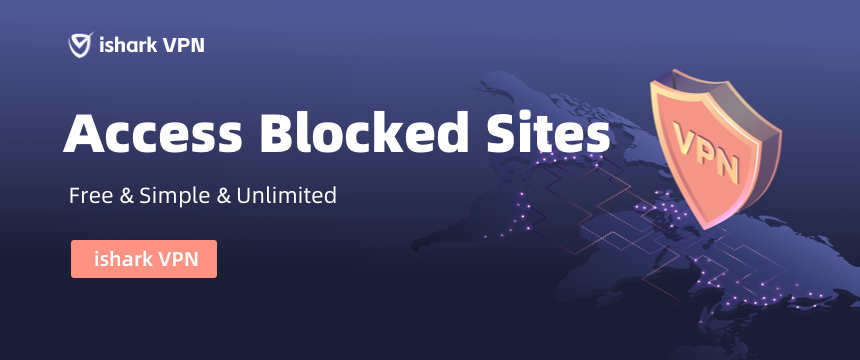VPN and Remote Audio-Video Conferencing: Ensuring High-Quality Online Communication
ishark blog article
The proliferation of remote audio-video conferencing has revolutionized how people communicate and collaborate in the digital era.
With the increasing trends of remote work and remote learning worldwide, audio-video conferencing has become a critical means of communication among businesses, academic institutions, and individuals.
However, as remote audio-video conferencing gains popularity, network stability and communication quality have emerged as crucial concerns.
To ensure high-quality online communication, an increasing number of users are turning to Virtual Private Networks (VPN) to optimize their remote audio-video conferencing experiences.
This article explores the widespread adoption of remote audio-video conferencing and the demands it places on network communication.
It further delves into the optimization and application scenarios of VPN in remote audio-video conferencing, addressing potential audio-video quality and bandwidth issues that VPN may encounter, and finally, it offers an outlook on the future development of VPN in remote audio-video conferencing.

The Proliferation of Remote Audio-Video Conferencing and Network Communication Demands
With the rapid growth of remote work and remote learning worldwide, remote audio-video conferencing has experienced an explosive rise in popularity. Businesses, academic institutions, and individuals alike rely increasingly on audio-video conferencing to facilitate remote collaboration and communication. This surge in demand has necessitated high-quality network communication, including stable connections, high-definition audio-video transmission, and real-time data delivery.
Optimization and Application Scenarios of VPN in Remote Audio-Video Conferencing
VPN, as an encryption communication technology, plays a pivotal role in remote audio-video conferencing.
The optimization and application scenarios of VPN in remote audio-video conferencing include:
Data Encryption and Privacy Protection: VPN encrypts audio-video conferencing data, ensuring that conference content remains secure and inaccessible to unauthorized parties, providing enhanced privacy protection.
Overcoming Geographical Restrictions: VPN enables users to bypass geographical restrictions and connect to desired servers, ensuring seamless audio-video conferencing across the globe.
Network Stability: VPN offers stable network connections, reducing network fluctuations and interruptions during audio-video conferencing, guaranteeing a consistent meeting experience.
Bypassing Blocking and Throttling: VPN can bypass certain network restrictions and throttling policies, ensuring high-quality audio-video transmission during conferences.
Addressing Potential Audio-Video Quality and Bandwidth Issues in Remote Audio-Video Conferencing with VPN
Using VPN in remote audio-video conferencing may encounter the following audio-video quality and bandwidth issues:
Latency: The VPN encryption and decryption processes may introduce some latency, affecting the real-time nature of audio-video conferencing. Measures such as optimizing VPN settings and selecting high-speed VPN service providers can help mitigate this issue.
Bandwidth Limitations: Audio-video conferencing requires substantial bandwidth support, and the VPN encryption process may consume some bandwidth resources.
Selecting high-performance VPN protocols and optimizing network settings can alleviate bandwidth-related challenges.

An Outlook on the Future Development of VPN in Remote Audio-Video Conferencing
As remote audio-video conferencing continues to gain popularity and VPN technology advances, the role of VPN in this domain is expected to grow even further.
In the future, VPN are likely to become more intelligent, optimizing audio-video transmission and network connections to enhance the quality and experience of remote audio-video conferencing.
Additionally, VPN service providers are expected to offer more specialized optimization services tailored to audio-video conferencing, meeting the increasing demand for high-quality online communication.
Conclusion:
VPN plays a crucial role in remote audio-video conferencing, ensuring secure data transmission and network stability, thus enabling high-quality online communication. Although some audio-video quality and bandwidth issues may arise when using VPN, appropriate optimization measures can overcome these challenges.
As technology continues to evolve, the significance of VPN in remote audio-video conferencing will grow, providing users with an improved remote collaboration experience.









